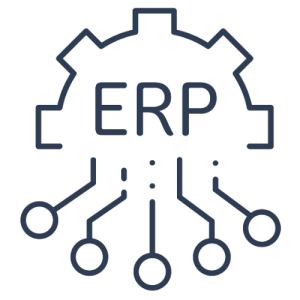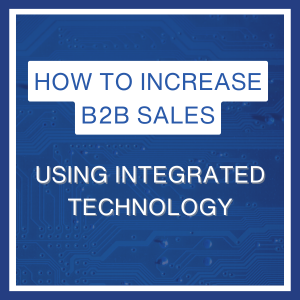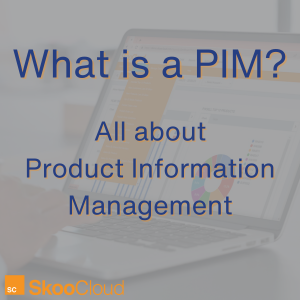ERP software for distributors – how to choose the right one
Investing in a new ERP software is a big decision for any business. Choosing the correct system can catapult your business’s growth, productivity, and efficiency.

When purchasing ERP software for distributors, questions need to be asked to ensure it is the right fit for your business. Every company is different and requires ERP software for various functions. Some systems can be more suited than others to your bespoke issues.
Various factors need to be questioned regarding the type of ERP software, integration capabilities, ease of implementation, and current expertise within the business surrounding ERP software. Once these have been considered, a company can decide which ERP solution best suits their present and future needs.
1. Is cloud ERP best for me?
Cloud software has revolutionised the ERP field over the past decade. It allows for remote working, which is at an all-time high due to the pandemic. This option gives many businesses the flexibility to offer remote working to their employees, which can be viewed as a significant benefit for some. Remote working itself has become a vital part of many businesses over the past 18 months. The altered recruitment strategies and savings from overheads mean many will no longer function without it. Moving away from the remote aspects, cloud-ERP has paved the way for affordable, subscription-based plans that give smaller-medium-sized businesses the opportunity to embrace ERP.
As a recommendation, it is common for small-medium-sized businesses to adopt cloud-based ERP solutions rather than larger organisations. Larger companies tend to require full functionality and the scope for the system to hold considerably more data. Not only this but with more data comes more concern for data security. This can be taken out of the customer’s hands if they use cloud-ERP as opposed to an on-premises solution.
2. Can the solution scale with my business?
Whether you are a first-time buyer of ERP or replacing your current system, you need to have a firm understanding of where you see the business in years to come. If you plan to dramatically increase the size of business operations over the coming years, you must make sure the ERP solution can handle the increased amounts of data and facilitate a certain number of users. The capabilities required of the solution also need to be considered. It is common for ERP providers to offer tiered subscriptions, meaning some features may be locked off unless a particular payment plan is chosen. The decision made on a specific payment plan needs to be heavily influenced by future operations rather than the current state of the business.
On the other hand, it can be wise to find an ERP provider that will scale along with your company at all stages rather than purchasing dedicated subscription plans. This can save the worry of having to plan all business growth plans around the capabilities of the ERP solution itself. This would be our main recommendation as it ensures the solution will match any spurts of unpredicted growth or demand.
3. Does it have the necessary integrations?
These days, many businesses rely on online marketplaces, 3rd party CRM, and various pieces of marketing software for email campaigns and forming customer lists. Modern ERP systems incorporate many commonly used integrations to ensure the solution interacts intuitively and efficiently to enhance the experiences with a given integration/3rd party software.
For businesses that utilise online marketplaces such as Shopify and eBay, it is vital that the ERP solution facilities this integration. If not, past sales, customer data, and product information can be lost once the business transfers over to an ERP system. The question of growth and scalability is once again present. Will you be requiring these integrations for the long-term, or are you perhaps moving away from online marketplaces to your own website? It is also highly recommended to receive a rundown of future integrations from the ERP provider in case there are any that may be of use to your business.
4. Can it transfer data from the current system?
If you are switching away from a system to begin using ERP, businesses will commonly want to carry over the data from the previous system. Critical information regarding all business aspects may be present on the old system. This makes it vital that the new ERP system can facilitate having the data ported across. Businesses should ensure they have a full-proof data migration strategy to ensure the process is as smooth as possible.
Recommendations for data migration:
- Have a dedicated development team for migration
- Start with smaller and less complex pieces of data, this allows you to keep control and check changes after each stage
- Establish a clear timeline and KPI’s for the data migration
A recommended follow-up question to delve deeper would be to identify how much support there is post-implementation. Even if an ERP solution can transfer data, there will likely be teething issues where expert help will be required to overcome the hurdle. This is especially the case if your business is moving to its first ERP/business management system.
5. What levels of support and training are available?
Many ERP providers will disclose this information on their website and make it apparent during the implementation stage. The option for extra training/support will often be available as an optional package for an increased price. Due to ERP systems’ complexity and inherent size, it is wise to become familiar with the system while expert help is at hand. However, not all businesses have the required budget for additional training & implementation costs.
This issue can be resolved in several ways. One of the most common ways is for the ERP provider to train a single employee from the client’s business to become proficient with the system. This allows them to pass on the knowledge they’ve gained and ensure there is always someone at hand who has a firm understanding of the system.
The levels of support post-implementation are also crucial. Having access to technicians daily can help ensure any issues with the system are resolved swiftly. It is uncommon for ERP providers not to offer high levels of support. However, it should be recommended to businesses to do their background research and check there are no past underlying issues with support via reviews & word of mouth.
Questions to ask when purchasing ERP software
Deciding which solution is best for your business will always be the critical starting point when choosing an ERP system. After this stage, it is evident that many of the questions you should ask yourself are based around the future of your business. The scope for growth and user experience post-implementation are the key aspects that need to be considered by business owners. ERP solutions can be a considerable investment, not just financially, but more from the aspect that your whole business will run through the system. This, therefore, makes it vital that you make the correct choice for your business.
Guest author Ellis Barkway – Digital Marketing Executive – Khaos Control
Related Articles


